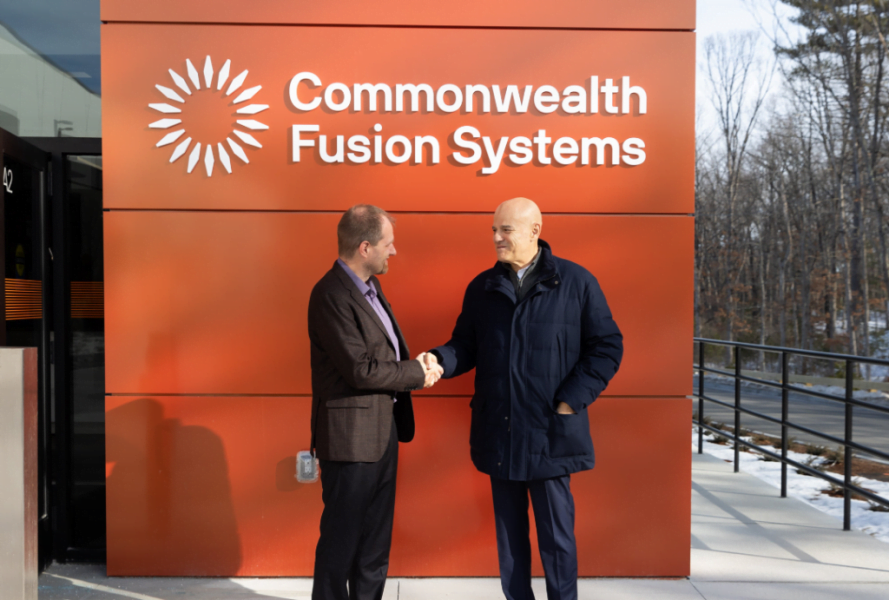Eni and Commonwealth Fusion Systems (CFS), a spin-out of the Massachusetts Institute of Technology (MIT) have signed today a Collaboration Framework Agreement with the aim of accelerating the industrialization of fusion energy.
Eni made its first investment into CFS in 2018 and is a significant shareholder. This strategic agreement will leverage Eni’s global engineering and project management experience for a series of projects to support CFS and the development and deployment of fusion energy on an industrial scale.
Eni was the first energy company to believe and invest in fusion, which could make a major contribution to the energy transition once it is developed on an industrial level.
CFS has the fastest pathway to commercial deployment of fusion energy. In September 2021, the company reached a major milestone with the successful test of its high-temperature superconducting magnet technology: the strongest magnet of its kind in the world, which will ensure plasma confinement in the magnetic fusion process, and which has paved the way for achieving net energy from fusion in a future demonstration plant.
The CFS path with support from Eni is one built on a pragmatic and progressive approach towards the deployment of magnetic confinement fusion technology in the next decade. SPARC, projected to become the world’s first magnetic confinement pilot plant with net production of fusion energy, is in construction and will be operational in 2025. SPARC will pave the way for ARC – the first commercial power plant capable of feeding electricity into the grid, which is projected to be operational in the early 2030s.
Eni’s CEO Claudio Descalzi said: “We will see the first CFS power plant based on magnetic confinement fusion at the beginning of the next decade, with then almost two decades ahead to deploy the technology and achieve the energy transition goals by 2050. Having this technology at the industrial level, providing large quantities of zero carbon energy produced in a safe, clean and virtually inexhaustible way, will mean that we will contribute substantially to the energy transition challenge. This is why we are facing a potentially momentous technological breakthrough. For several years, Eni has placed technology leadership, with a neutrality and diversification approach, at the heart of its decarbonization path. Being aware of the great strategic value of this technology and the soundness of CFS, since 2018 Eni has invested in the business and was the first energy company to concretely engage in this sector. We now further strengthen this collaboration with our expertise and experience with the aim of accelerating the industrialization path of fusion as much as possible.”
“The collaboration framework between CFS and our long-standing partner, Eni, has great potential to advance our efforts on key global challenges and opportunities in transforming the energy landscape with a limitless supply of clean fusion energy,” said CFS CEO Bob Mumgaard. “This agreement underscores the key role existing energy companies play in accelerating fusion energy industrialization and the power of pairing of complementary organizations.”
In detail, the Framework Agreement aims at accelerating the industrial development of ARC as well with a series of projects now under development that could include operational and technological support, technological development, project execution through the sharing of methodologies learned from the energy industry, as well as relationships with stakeholders.
For Eni magnetic confinement fusion has a central role among the technologies that can lead the way to decarbonization as it will prospectively allow humanity to have a virtually inexhaustible supply of energy and without CO2 emissions, transforming the paradigm of energy generation forever.

